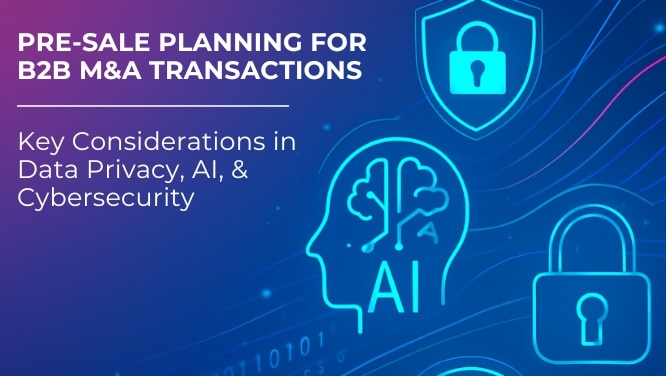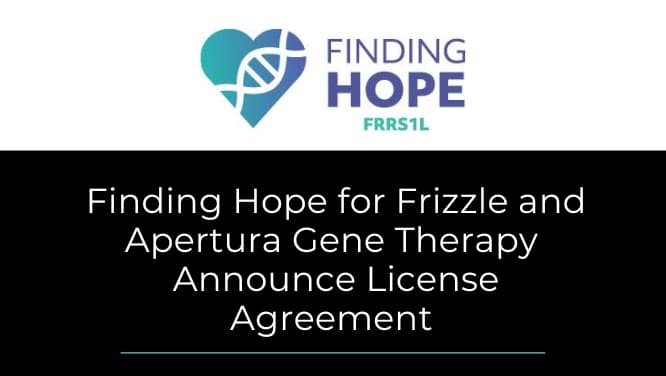Can Businesses Influence Federal Government Contract Terms?

- Dan Fredrickson
- |

- Ben Oelsner
- |
- September 28, 2022
The Role of Federal Acquisition Regulations
Securing a federal government contract is often a huge win for businesses, but negotiating contract terms can feel like a massive undertaking that may make you doubt the value of the deal you just won.
These contracts can feel overly complex and even non-negotiable, and businesses are frequently asked to agree to terms that are not required or simply do not make sense.
Knowing when and how to negotiate the commercial terms in a federal government contract can have a huge impact on the profitability, length and lifetime value of your deal. Read on to learn more about which federal contract terms apply to commercial agreements and what rights and requirements you’re likely to have.
Why are federal government contracts so far-reaching and complex?
Put simply, it’s because of how Federal Acquisition Regulations or “FARs” are typically applied – or to be more precise – misapplied. FARs address default licensing terms, ownership rights, and other terms that have a material impact on both the deal at hand, and on your company as a whole. As a result, companies that contract with the federal government or a governmental agency (directly or as a subcontractor) are frequently presented with a laundry-list of default contracting terms purportedly mandated by law under the FARs.
However, this approach overlooks the separate – and often more relevant – terms that apply to “Commercial Items” laid out in Part 12 of FAR. Pursuant to FAR 12, the federal government is specifically directed to purchase commercial items under the standard agreements generally used by the company with its other, non-government clients. There remain required contracting terms that apply, but these are much more streamlined in comparison to other federal contract acquisitions, and must more closely resemble market terms.
The impact of FAR Part 12 on commercial product and service contracts
FAR Part 12 allows vendors to sell their commercial products and services under terms and conditions similar to those used in the commercial marketplace, potentially easing the contracting burden on commercial vendors. In fact, the use of the procedures and contract clauses in FAR Part 12 is mandatory whenever a federal agency is acquiring supplies or services that meet the definition of a commercial product or commercial service.
There are many specific criteria by which a commercial product or service is defined, but it starts with a product or service that is used by or will soon be offered for sale, lease or license to the general public or other non-governmental organizations for non-governmental purposes. Talk with your contracts attorney about how the full list of criteria applies to your company’s products or services.
If a government purchase meets the commercial definition, FAR Part 12 places three mandatory requirements on federal agencies:
1. They must conduct market research to determine whether commercial items or non-developmental items are available to meet agency requirements. Non-developmental items are those that have been previously developed for use by federal, state, local, or a foreign government and require no further development.
2. They must acquire available commercial items or non-developmental items to meet agency requirements; and
3. Prime contractors and all subcontractors must use, to the maximum extent practicable, commercial items or non-developmental items as components in noncommercial end items supplied to the government.
A commercial software example
Consider how these terms play out in the acquisition of commercial computer software by a government contractor on behalf of a federal agency. In this instance, you would be a subcontractor to the government contractor, and the government contractor would likely attempt to flow down to you all of the federal contract terms that it is subject to under the prime contract.
However, in this case, because the software is a commercial item, the terms of FAR 12 would apply. Under FAR Part 12 the commercial computer software and associated documentation must be acquired under licenses customarily provided to the public and vendors. In this example, you would not be required to give the government contractor or federal agency any rights to use, copy, share or modify the software (among other things) in any way that is inconsistent with your existing commercial licensing terms, and you would not be required to use the primary contractor’s agreement. In fact, they would be required to use your standard agreement, which can be negotiated by the parties.
For example, if a government contractor seeks to acquire the rights to use software from a company that provides a software-as-a-service (“SaaS”) solution as a commercial service to customers, pursuant to FAR Part 12, that government contractor cannot force the SaaS solution provider to agree to the terms of the contractor’s prime contract with the federal agency or flow down to the provider all the FAR requirements that the contractor has agreed to in its prime contract. Under this scenario, the contractor is making a “commercial buy” under FAR Part 12 which is subject to the requirements set forth above.
Of course, the specific details of each agreement may vary and it’s always best to consult a government contracting expert, but it’s important for providers of commercial products and services to know their rights based on FAR.
Will FAR impact my state and municipal government contracts?
Generally, no. Individual states and municipalities usually do not have the same requirements for acquisition of commercial items, so there is a higher opportunity for negotiation to make sure the proper terms are used in these agreements. However, it’s always a good idea to have your contracts attorney review any government (or non-governmental for that matter) contracts to ensure the terms are applicable, enforceable and as favorable as possible to your objectives.
Best practices for negotiating government contracts
To ensure you are not inadvertently agreeing to terms that are not appropriate, it’s always best to work with an experienced contracts attorney. This is true even when you are told that certain terms are mandated or non-negotiable. The team at KO has extensive experience advising clients on both governmental and non-government contracts.
Dan Fredrickson is a partner at KO Law Firm. Dan assists companies in connection with complex commercial and technology transactions. His clients range from early-stage startups and emerging companies to private and public multinational corporations across many industries, including software, energy, life sciences, hardware, Internet and eCommerce, consumer products, and professional services.
KO partner Ben Oelsner advises startups, small and medium sized businesses, and growth companies with their intellectual property and technology transactions, IP protection strategy, and data security and data privacy strategy.




